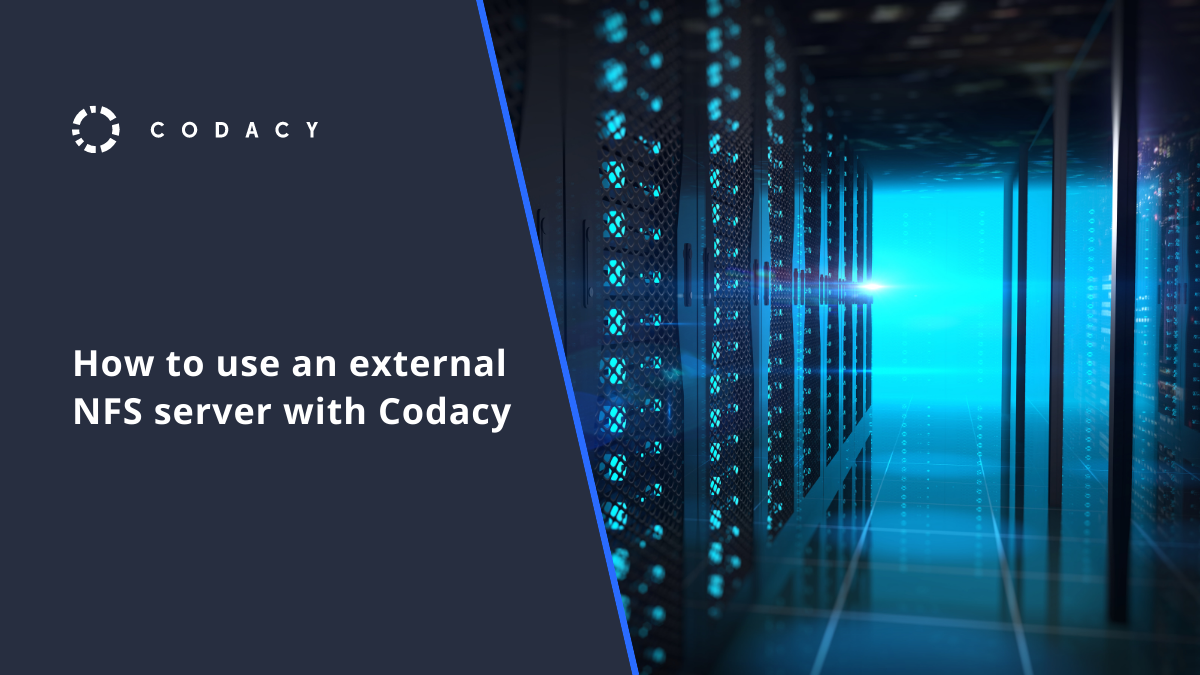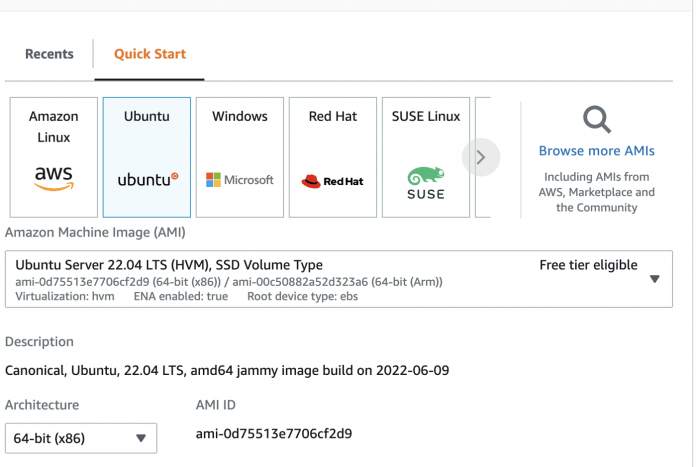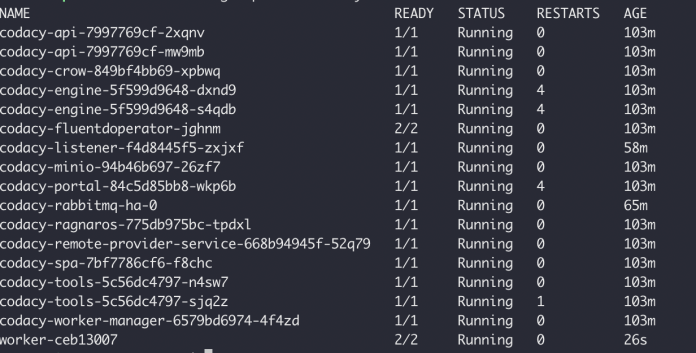How to use an external NFS Server with Codacy

Part of my job as a Solutions Engineer at Codacy is to help customers performing on-prem installations.
Although Codacy on-prem comes with a built-in NFS server provisioner, it’s possible to use an external NFS Server. This tutorial will cover how to do that. It’s based on AWS but, give or take, should work for any other cloud provider.
First, let’s create a basic Ubuntu-based EC2 instance.
⚠️ Don’t forget to respect the system requirements regarding disk size. ⚠️

Regarding Security Groups, ports 2049 (NFS) and 22 (SSH) should be open. In this example, I’ve opened for the world but you should limit it for obvious security reasons.

Now, let’s jump inside our new EC2 instance, update it, install nfs-kernel-server and create a data folder.
sudo apt update
sudo apt install nfs-kernel-server
sudo mkdir /var/nfs/data -p
sudo chown nobody:nogroup /var/nfs/data/After this step, we need to configure /etc/exports in order to add the created folder.
/var/nfs/data CLIENT_IP(rw,sync,no_subtree_check,no_root_squash)🚨 CLIENT_IP should be replaced with the IP address of your Codacy instance/cluster IP address 🚨
And then, restart the nfs-kernel-server.
sudo systemctl restart nfs-kernel-serverAt this stage, the NFS server should be ready. We just need to configure Codacy. In order to do that, we must edit the values-production.yaml file:
nfsserverprovisioner:
enabled: false
cache:
name: listener-cache
path: /data
nfs:
server: NFS_SERVER_IP
path: /var/nfs/data/🚨 NFS_SERVER_IP is the IP address for your NFS server 🚨
Now, a quick deploy ⌛️
helm upgrade --install codacy codacy-stable/codacy \
--namespace codacy \
--version $VERSION \
--values values-production.yaml
# --values values-microk8s.yamlAnd Codacy is using an External NFS Server 🎊
kubectl describe pod -n codacy codacy-listener-######
Volumes:
listener-cache:
Type: NFS (an NFS mount that lasts the lifetime of a pod)
Server: NFS_SERVER_IP
Path: /var/nfs/data/
ReadOnly: false
Full documentation on how to install Codacy on-prem can be found here.
This article was originally published by Hélio Rocha, Lead Solutions Engineer at Codacy on his Medium account.
.svg)

